Last week, I talked about how a couple of merchants in a little medieval town created an unanticipated social capital footprint. Their decisions to uphold and propagate standards of honest weights, excellent service, and integrity had far-reaching consequences for themselves and their community and the world.
It is little surprise, then, that out of that unintended stock of positive social capital grew a flourishing trade that yielded the fruit of leaders who made London into the center of banking and commerce for a growing empire.
Conversely, what does a shrinking social capital base look like?
Consider how life in the U.S. changed after the corporate scandals of the late ‘90s (Enron, Worldcom, Qwest to name a few) and the September 11 event eroded social capital of trust both in the marketplace and among citizens. In an attempt to stop the erosion of social capital by bringing needed oversight to corporate accounting, Congress passed the sweeping Sarbanes-Oxley (SOX) Act of 2002. This act required the use of independent third party audits of corporate financials and CEOs and CFOs signing off on the accuracy of those corporate financial statements.
Did SOX work?
Yes and no. In a recent talk [1], Ken Eldred related the story of the transaction cost of taking his company, Inmac, public in the late 1980s. In that pre-Sarbanes Oxley environment, it cost $750,000. Under SOX regulations, that same transaction would now cost $5.5M! That, he explains, is one unintended consequence of our shrinking social/spiritual capital.
SOX Section 404, which requires companies hire third-party independent auditors to assess their internal controls took effect in 2004, and external audit fees increased 271 percent between 2001 and 2006 (2007 Foley & Lardner study). By their fourth year of SOX compliance, most organizations spend in the range of $100,000 to $1 million annually on compliance-related activities. In addition, board members and executives must spend added time and focus on compliance matters.[2]
Against this sobering backdrop it’s easy to become cynical and despairing. So, what can we business owners do? First, remember that our greatest strength is adaptability. We can waste energy whining or adapt to a constantly changing regulatory environment. Second, we can continue to do what we always do.
Don’t curse the darkness but light a candle.
-Chinese proverb.
Our candle? Building the foundation of social capital: relationships! Every business owner knows the tremendous value of loyal customers. One happy lifetime customer is worth more than 5 new ones.
What if, like the guilds of the 12th century, we begin to create self-regulating communities of partners who hold similar values and are committed to doing business according to those values? Might that not reduce the time to cultivate additional business? Trust is a powerful catalyst to diminish the time needed to complete transactions.
Three relational investments that will help you grow social capital within your firm and your circle of influence:
- Creating Humus: What are you doing to deepen longtime relationships with key clients and partners? What have you done lately to serve them?
- Creating Social Capital: Do you openly communicate your core values with employees, clients and valued partners? Do you openly live them out?
- Creating Synapses: Do you connect people? And when you connect them, do you
* understand and communicate with both parties why they should connect with each other?
* follow up to learn the impact it has both parties’ businesses?

In a recent meeting, I was impressed when a fellow business owner said that when he brings both buyer and seller together in a transaction, both parties are satisfied and often do repeat business with his firm. His conference room had a “Hall of Fame” displaying the logos of longtime clients he’s done business with. It was a powerful way to demonstrate the social capital his firm has been growing for years.
Toolkit:
Consider taking strategic time to ask yourself a few simple questions:
- Where is my business floundering due to social capital erosion?
- What’s one step I can take this week to increase social capital in one of these relationships:
- my key employees?
- my most valuable clients and strategic partners?
- my trade group?
1 Story from Ken Eldred’s speech given at CCBA in Denver, Sept. 17, 2014
2 Source: http://www.insidecounsel.com/2012/01/01/8-ways-sox-changed-corporate-governance?page=7



